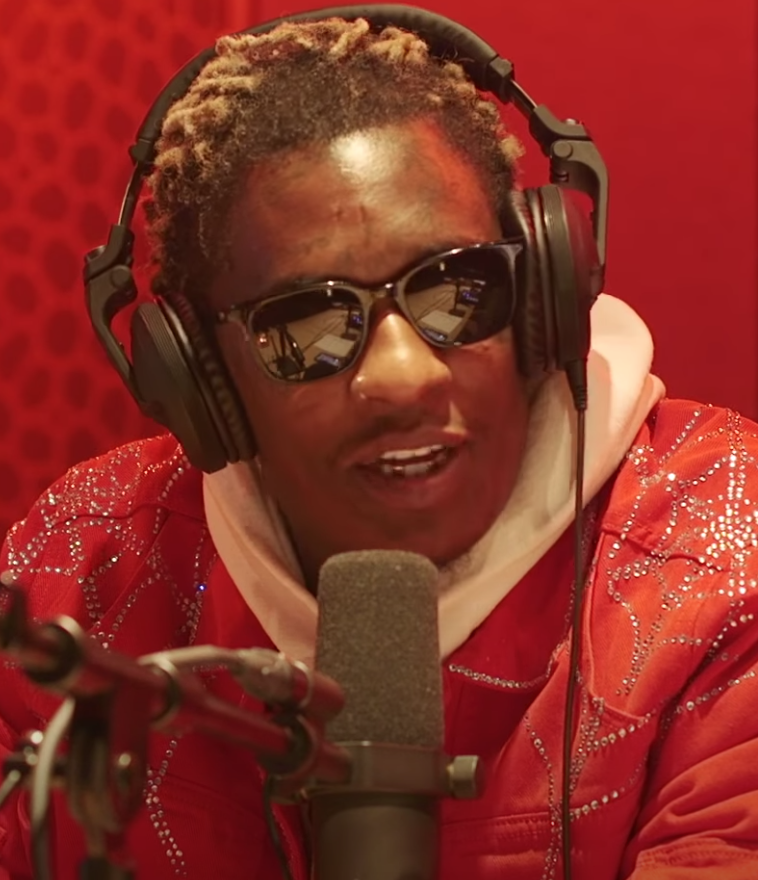In the ever-evolving landscape of the music industry, artists often use their lyrics to express their thoughts, emotions, and experiences. While it's not uncommon for musicians to touch on controversial topics, the question of whether an artist's lyrics can be used against them in a court of law is a topic of ongoing debate.
Recently, the rapper Young Thug found himself at the center of such a controversy as his lyrics were brought into the courtroom during his trial on RICO charges. In this blog post, we will explore the complex issue of using an artist's lyrics to convict them and discuss Young Thug's case in detail.
The Power of Music Lyrics
Music has long been a form of artistic expression, allowing artists to comment on society, share personal experiences, and reflect on their own lives. Hip-hop, in particular, has been a platform for artists to address issues like violence, poverty, and social injustice. These themes are often depicted through vivid and sometimes provocative lyrics.
However, the power of music lyrics lies in their artistic and metaphorical nature. They are a creative outlet for artists to convey emotions and experiences without necessarily endorsing or engaging in illegal activities. This nuance is at the heart of the debate over whether an artist's lyrics should be used as evidence in a criminal trial.

Williams in 2021. Source: https://en.wikipedia.org
Young Thug's Trial: The RICO Charges Explained
Young Thug, born Jeffery Lamar Williams, is a renowned rapper known for his unique style and influential contributions to the hip-hop genre. In late 2023, he faced a trial on RICO (Racketeer Influenced and Corrupt Organizations Act) charges. RICO is a federal law designed to combat organized crime, and it allows prosecutors to target individuals associated with criminal enterprises.
In Young Thug's case, the prosecution presented his lyrics as evidence to suggest that he was involved in criminal activities, including acts of violence and drug trafficking. The argument was that the rapper's lyrics glorified and, in some instances, appeared to confess to such actions.
The Controversial Use of Lyrics as Evidence
The use of lyrics as evidence in a criminal trial raises several important questions about artistic expression, freedom of speech, and the legal system. Here are some key points to consider:
- Artistic Expression vs. Criminal Intent: One of the central issues is distinguishing between an artist's use of creative storytelling and their actual involvement in criminal activities. Lyrics often contain hyperbole, metaphor, and fictional elements, making it challenging to draw a direct link between the words and real-life actions.
- Freedom of Speech: Musicians, like all artists, have the right to freedom of speech and expression. Using their lyrics against them can be seen as a potential infringement on this fundamental right. It sets a precedent that could discourage artists from addressing important issues in their work.
- Subjectivity and Interpretation: The interpretation of lyrics can vary widely from person to person. What one listener perceives as a confession may be viewed as metaphorical or exaggerated language by another. This subjectivity complicates the use of lyrics as concrete evidence in court.
- Chilling Effect: The fear of legal repercussions could have a chilling effect on artists, leading them to self-censor and avoid tackling controversial or sensitive subjects in their music for fear that their words could be misconstrued in a courtroom.
The use of Young Thug's lyrics in his RICO trial brings to the forefront the ongoing debate over whether an artist's creative expression should be used to convict them of criminal activities. While the legal system must address criminal behavior, it is essential to strike a balance that respects the freedom of speech and artistic expression.
As Young Thug's case unfolds, it serves as a reminder of the complex and contentious relationship between music, lyrics, and the law. It prompts us to reflect on how we perceive and interpret artistic works and the potential consequences of using lyrics as evidence in criminal proceedings. Ultimately, the outcome of Young Thug's trial will have broader implications for the future of creative expression in the music industry and beyond.
